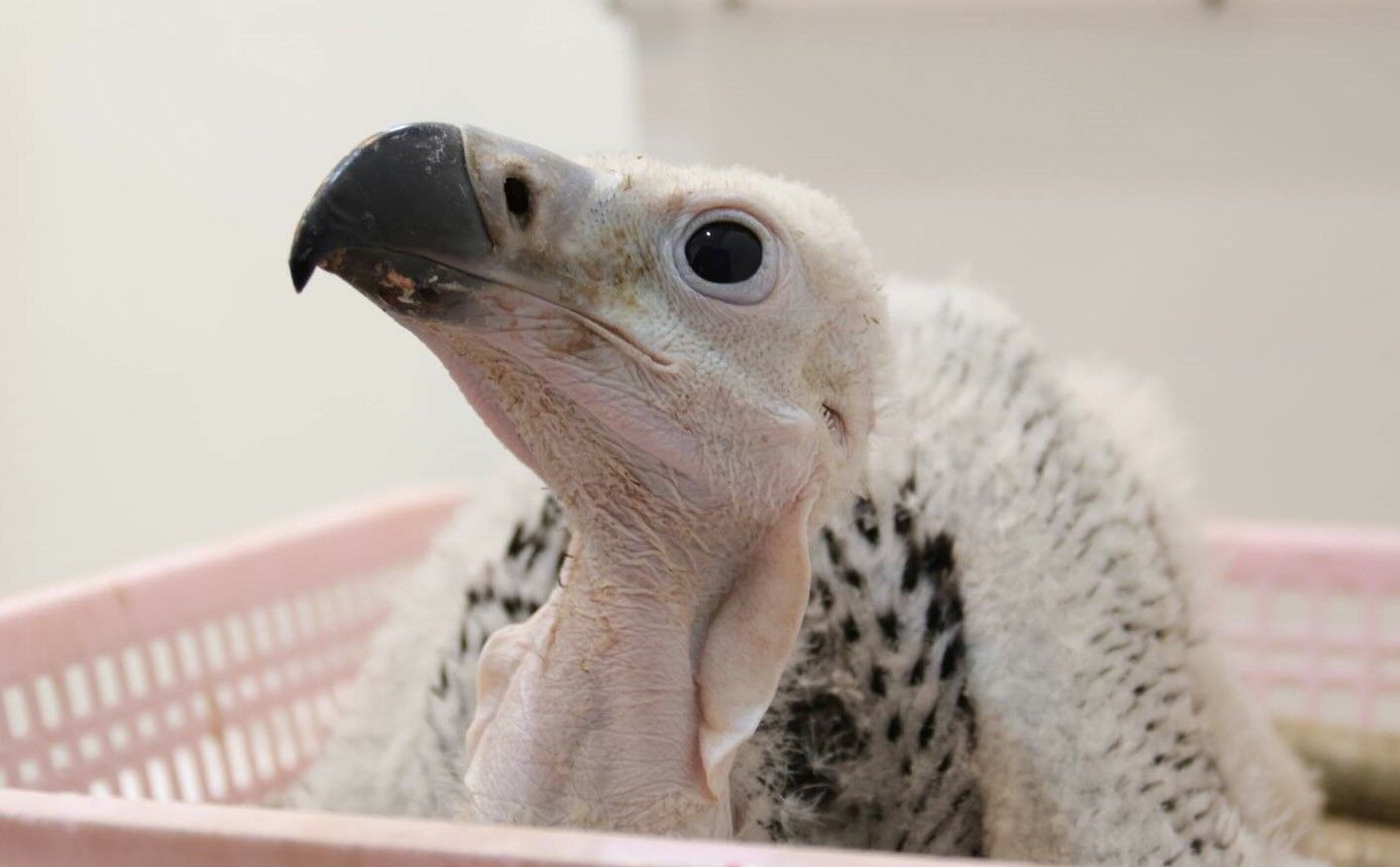Thai zoo successfully breeds Asian king vulture for the first time in Thailand in 30 years

Nakhon Ratchasima Zoo in the Isaan region of Thailand announced that their team has successfully bred a red-headed vulture, commonly known as the Asian king vulture. This is an important milestone as it signifies the first successful breeding of this species in Thailand in the last 30 years, and only the second instance worldwide.
Korat Zoo announced today that a female vulture named Nui and a male vulture named Jack have successfully bred, resulting in an egg that hatched into a red–headed vulture chick.
The zoo’s team closely monitored the pair after Nui laid the first egg on January 17 and placed the egg in an incubator for about 50 days to ensure a higher survival rate. The baby vulture was born on March 8.
Another egg was laid by Nui on February 26, and this time, the team allowed the mother to care of it herself, hoping for good news about a second vulture chick soon.
According to ThaiRath, this year, only two red-headed vulture chicks have been born in breeding centres, and one of them was born in Thailand in March.
The Director of the Zoological Park Organisation of Thailand, Autthapon Siherun, explained that the zoo has taken great care to ensure that the vulture chick was healthy and stable before announcing the good news. The red-headed vulture has been in serious decline and the breeding of a new vulture is a significant achievement.
Autthapon stated that Thailand has only six red-headed vultures in wildlife breeding centres across the country. Korat Zoo first received a vulture egg in 2020, but a breeding attempt was unsuccessful. This time, the team let the male and female vultures breed naturally, which led to the successful birth of the vulture.
Autthapon went on to explain that there were 23 species of vulture in the world and five of them can be found in Thailand.
The red-headed vulture disappeared from its natural habitat 30 years ago. The latest group was seen at the Huay Kha Khaeng Wildlife Sanctuary but they were poisoned by a hunter. The carcass was found on February 14 in 1992.
The population of vultures in the world has been decreasing drastically, particularly that of the red-headed vulture. There are less than 9,000 red-headed vultures in the world, making breeding them in captivity rare and valuable.
Latest Thailand News
Follow The Thaiger on Google News:



























